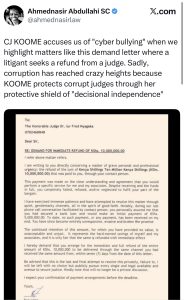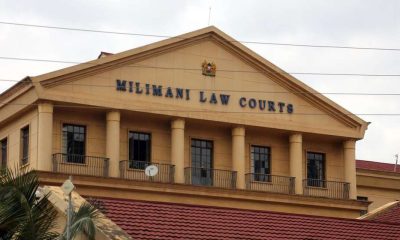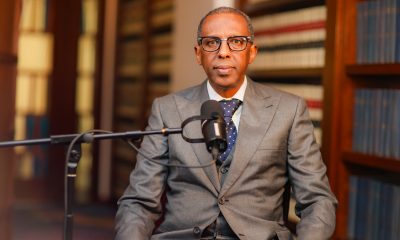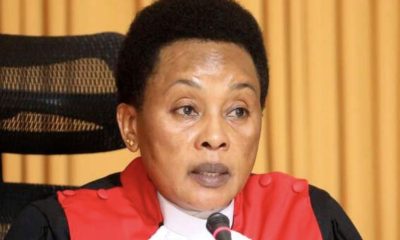Investigations
Calls Mount For Probe in Judge Nyagaka and Controversial Businessman in Sh10 Million Bribery Scandal
The journalist spent the night in custody before being released on a free bond Saturday morning, with orders to report to Migori County Criminal Investigation offices next week.
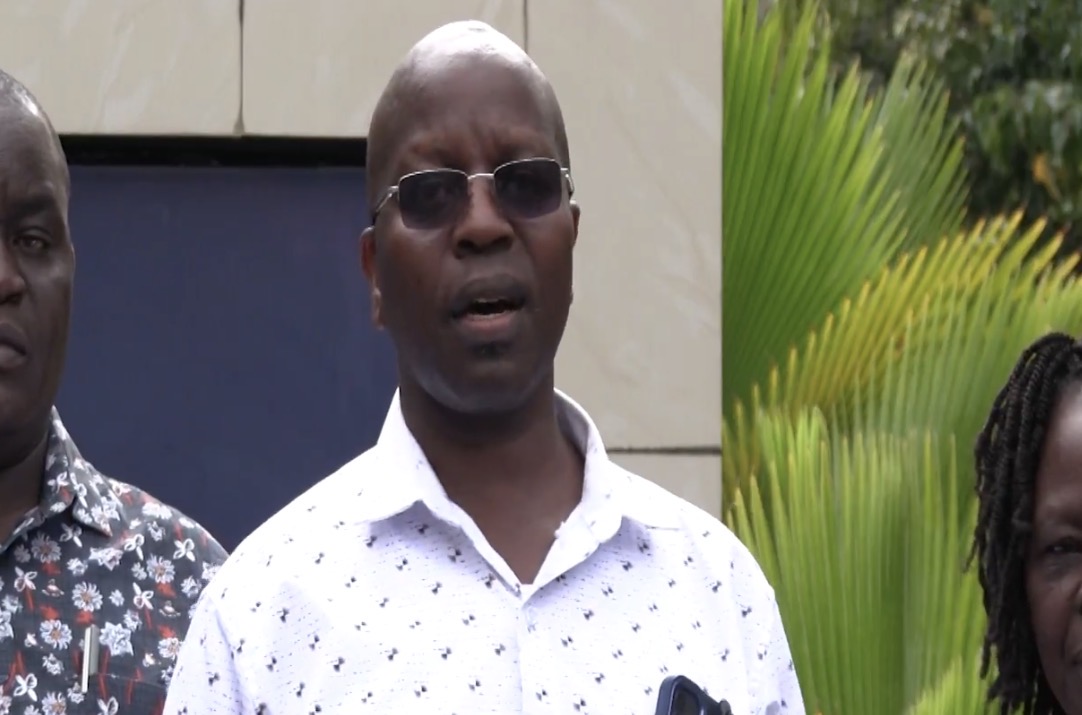
Anti-corruption agencies face mounting pressure to investigate allegations against Migori-based magistrate as journalist’s arrest sparks press freedom concerns
Fresh calls for an independent investigation into bribery allegations against Justice Fred Nyagaka have intensified following the controversial arrest and detention of journalist Collins Kweyu, who was pursuing the corruption story.
The scandal centers around accusations that the Migori-based judge received Sh10 million to influence a land dispute ruling, only to allegedly rule against the party that paid the bribe and subsequently refuse to refund the money.
The allegations have now become a matter of public interest following Kweyu’s overnight detention at Nairobi’s Central Police Station.
According to documents and communications that have surfaced on social media, the accusations involve a complex web of allegations surrounding a land case that was being handled at the Environment and Land Court (ELC) in Kitale.
The complainants allege that after paying the substantial sum through an intermediary, Justice Nyagaka delivered an unfavorable judgment and has since become “entirely unresponsive, evasive and broken the promise” to refund the money.
Nelson Havi, a prominent lawyer and former Law Society of Kenya president, has been vocal in questioning the integrity of the investigation process.
In a social media post, Havi argued that “The DCI Kenya cannot be trusted in the complaint of bribery against Justice Fred Nyagaka” and called for the Ethics and Anti-Corruption Commission to “summon the Judge and Ben Limo to record statements and investigate the matter.”
Havi further criticized the arrest of Kweyu, describing it as “diversionary” and questioning the timing and manner of the detention.
His comments reflect growing concerns within legal and media circles about the handling of corruption allegations within the judiciary.
The controversy took a dramatic turn when Kweyu was arrested on Friday evening after what he described as being “deceived into attending a meeting at a Nairobi restaurant.”
The journalist spent the night in custody before being released on a free bond Saturday morning, with orders to report to Migori County Criminal Investigation offices next week.
Professional journalism associations have condemned the arrest as an attack on press freedom.
The Crime Journalists Association of Kenya, through Secretary General Brian Obuya, described the use of state machinery to silence a journalist investigating possible judicial corruption as “an attack not only on press freedom but on the very rule of law itself.”
The association expressed particular concern about attempts to access Kweyu’s phone and computer equipment, viewing this as an effort to identify confidential sources.
“We are deeply concerned by the manner and timing of Kweyu’s arrest, and the court orders issued to search his house and computer equipment. We see this as an attempt by the police to establish Kweyu’s source,” the statement read.
Kweyu, who has been in journalism since the 1990s according to his father Peter Kweyu, remains defiant despite the ordeal.
“I will not be cowed by this experience; the work I do must continue,” he said after his release, though police are still holding his phone.
The case has also attracted international attention, with Amnesty International calling for Kweyu’s safety while in custody and urging that his rights as a detainee be respected.
Legal expert Ahmednasir Abdullahi has weighed in on the matter, suggesting that while “the allegations are very serious,” the Judicial Service Commission might dismiss the complaint “on the basis that the bribe was taken in the context of the judge exercising his decisional independence on the matter at hand.”
The allegations against Justice Nyagaka involve claims that he was approached through intermediaries regarding a land dispute and that payment was made with the expectation of a favorable ruling.
When the judgment allegedly went against the paying party, demands for a refund were reportedly made, leading to the current controversy.
The documents circulating on social media include what appears to be a formal demand letter dated August 20, 2025, signed by someone identified as “Ben Limo,” demanding the immediate refund of KShs. 10,000,000.
The letter threatens to “publicly pursue every single legal available avenue to secure justice” if the matter is not resolved privately.
As the story continues to unfold, pressure is mounting on anti-corruption agencies to conduct a thorough and transparent investigation.
The case has highlighted ongoing concerns about judicial integrity in Kenya and the challenges faced by journalists attempting to investigate corruption within the justice system.
The incident occurs against a backdrop of increased scrutiny of Kenya’s judiciary and ongoing efforts to strengthen anti-corruption mechanisms.
How authorities handle this case will likely be seen as a test of the government’s commitment to fighting corruption and protecting press freedom.
Justice Nyagaka has not yet publicly responded to the allegations, and attempts to reach him for comment have been unsuccessful.
The case is expected to continue generating significant public interest as it moves through the investigation process.
Kenya Insights allows guest blogging, if you want to be published on Kenya’s most authoritative and accurate blog, have an expose, news TIPS, story angles, human interest stories, drop us an email on [email protected] or via Telegram
-

 News2 weeks ago
News2 weeks agoTHE FIRM IN THE DOCK: How Kaplan and Stratton Became the Most Scrutinised Law Firm in Kenya
-

 Economy2 weeks ago
Economy2 weeks agoIran Demands Arrest, Prosecution Of Kenya’s Cup of Joe Director Director Over Sh2.6 Billion Tea Fraud
-

 Grapevine1 week ago
Grapevine1 week agoA UN Director Based in Nairobi Was Deep in an Intimate Friendship With Epstein — He Even Sent Her a Sex Toy
-

 Business2 weeks ago
Business2 weeks agoKPC IPO Set To Flop Ahead Of Deadline, Here’s The Experts’ Take
-

 Politics2 weeks ago
Politics2 weeks agoPresident Ruto and Uhuru Reportedly Gets In A Heated Argument In A Closed-Door Meeting With Ethiopian PM Abiy Ahmed
-

 Investigations1 week ago
Investigations1 week agoHow Mexico Drug Lord’s Girlfriend Gave Him Away
-

 Business1 week ago
Business1 week agoSafaricom Faces Avalanche of Lawsuits Over Data Privacy as Acquitted Student Demands Sh200mn Compensation in 48 Hours
-

 Investigations2 weeks ago
Investigations2 weeks agoKenya’s DCI Opens Probe on Russian Man Who Secretly Filmed Sex Escapades With Women — But There’s a Slim Chance They’ll Ever Get Him

